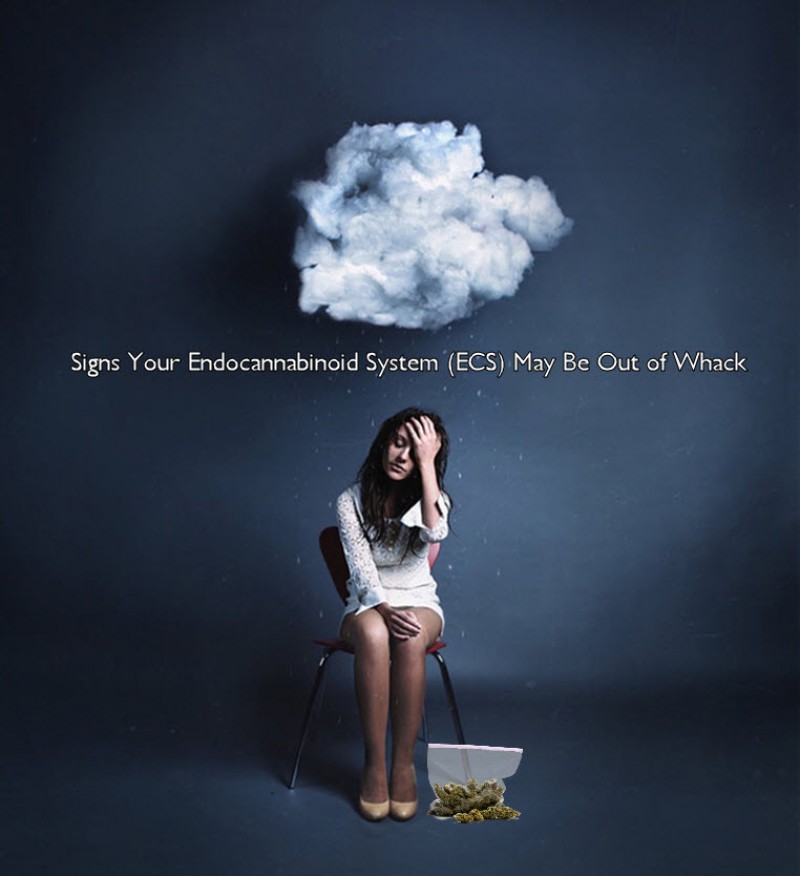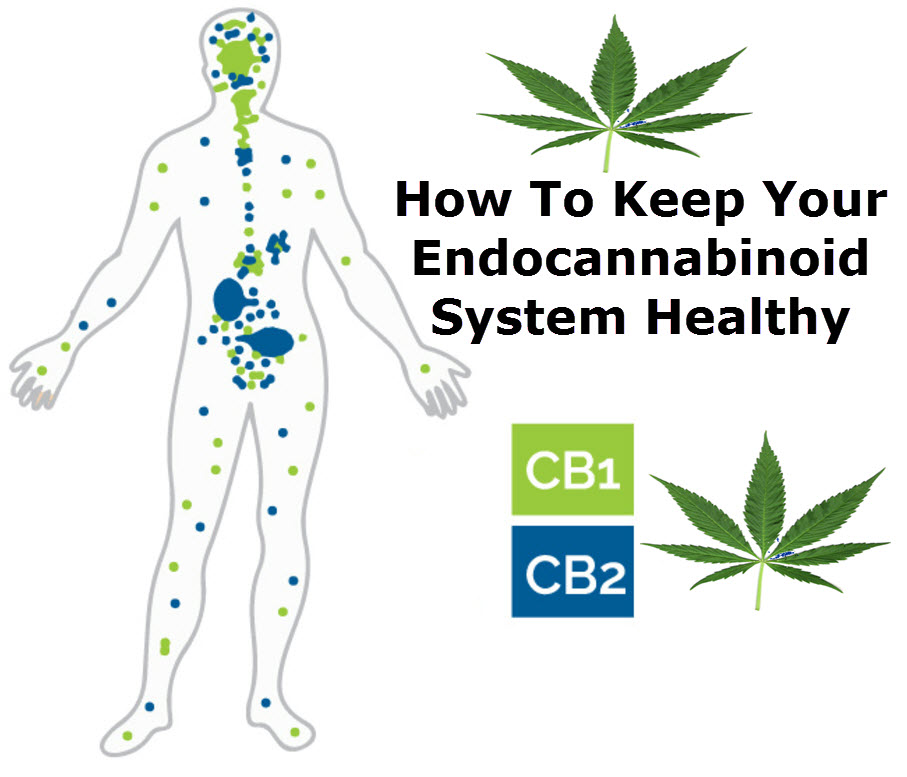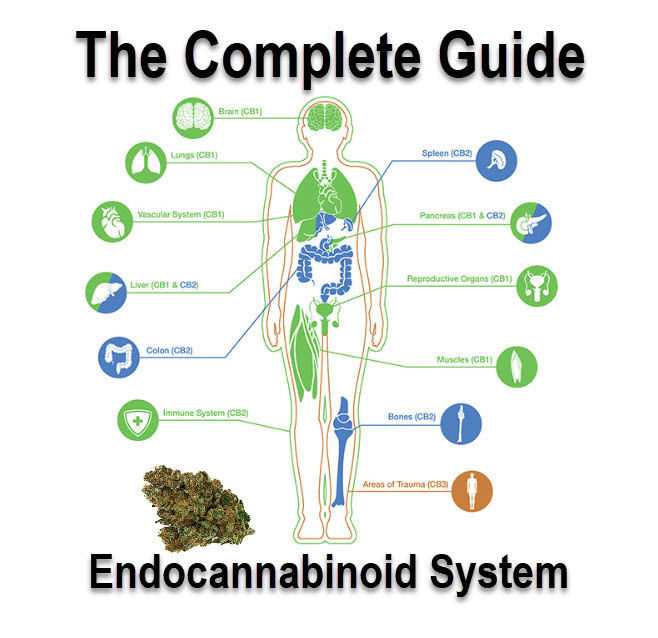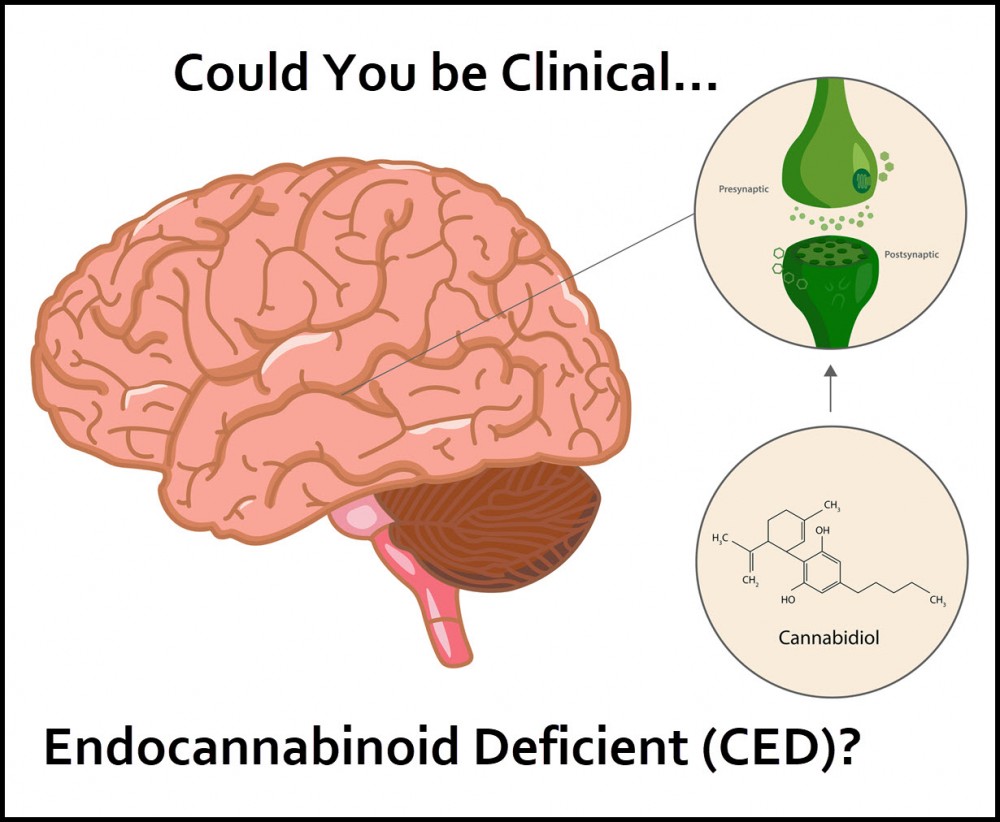Signs Your Endocannabinoid System May Be Out of Whack
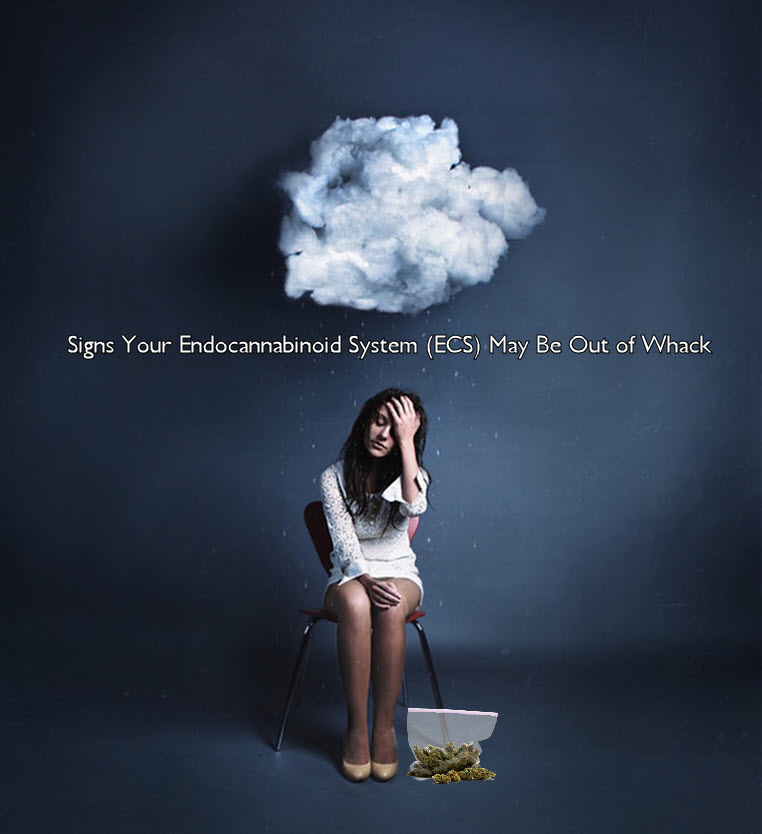
When we get sick, most of us blame our immune systems for failing us. But of course, the immune system isn’t solely responsible. A range of factors can cause us to become ill, from stress and diet to environmental factors. There’s also the endocannabinoid system (ECS), which isn’t typically a person’s first thought when they’re feeling rough. But it turns out, the ECS is just as responsible as your immune system when you’re feeling under the weather. That’s because the two work hand in hand, with the ECS acting as a regulatory system that works to bring balance (ie. homeostasis) to the body and make sure everything’s working as it should be.
If you’re reading this, chances are you’ve already heard of the endocannabinoid system. But for the uninitiated, the ECS is a biological system, much like the reproductive system or immune system, that regulates a range of functions in the body, including immune response, pain, appetite and metabolism, communication between cells, memory, and more. It does this through the production of endogenous cannabinoids (anandamide and 2-AG) and their interactions with special cannabinoid-specific receptors called CB1 and CB2.
Due to the ECS’ importance in maintaining balance in our bodies, just like our other systems, it requires care and upkeep, otherwise, if and when it goes off-kilter, a whole range of bodily functions could go askew. At least that’s what Dr. Ethan Russo, director of research and development at the International Cannabis and Cannabinoids Institute, theorizes.
Clinical Endocannabinoid Deficiency was a theory posited by Dr. Russo back in 2001 in which he theorized that low endocannabinoid levels could be behind a range of chronic conditions such as IBS, fibromyalgia, migraines, and other treatment-resistant syndromes. Dr. Russo suggested that because these conditions are all developed over time, rather than congenitally, and that they could be a result of disturbances to the ECS. This also means there’s a possibility of reversing them.
Dr. Russo revisited this theory in 2016 with his paper Clinical Endocannabinoid Deficiency Reconsidered after more research had surfaced over the years to strengthen his theory, particularly the significant differences in levels of the endogenous cannabinoid anandamide being recorded in migraine sufferers’ cerebrospinal fluid; the decreased ECS function of PTSD patients; as well as the numerous studies that have shown the benefits of cannabinoid treatment in promoting sleep and decreasing pain.
But outside of chronic conditions, what are the other signs of a weakened endocannabinoid system? Here are a few:
1. Anxiety or depression - According to Healthline, at least 7 percent of American adults have had at least one major depressive episode in a given year. We’ve all dealt with anxiety and depression at least once in our lives. According to experts, a deregulated ECS is thought to be an indicator of emotional stress. In addition, low levels of the endocannabinoid 2-AG is seen in depressed states and PTSD. One study found that blocking the CB1 receptor resulted in increased anxiety. This has led researchers to believe that normal CB1 receptor expression plays a crucial role in maintaining mental health.
2. Sensitivity to pain - An oversensitivity to pain could be an indicator of an endocannabinoid deficiency. Research has discovered that sufferers of conditions such as IBS, migraines and MS demonstrate lower levels of anandamide and 2-AG, as well as fewer endocannabinoid receptors. This is perhaps why cannabis is such an effective treatment for autoimmune conditions like these. It’s also a potent analgesic and one that’s less harmful and has fewer side effects.
3. Inability to lose weight - Although weight gain is commonly associated with cannabis, the reverse may in fact be true. As previously mentioned, one of the functions the ECS regulates is appetite and metabolism. Studies show that low levels of endocannabinoids are expressed in those affected by excess weight and obesity.
4. Sleep disorders - Struggling with insomnia? Studies suggest that endocannabinoids help promote more restful sleep and help those struggling with sleep disorders. It’s the reason why many have found relief from their own sleep struggles after using CBD oil at night.
Dr. Russo noted in the paper, “If endocannabinoid function were decreased, it follows that a lowered pain threshold would be operative, along with derangements of digestion, mood, and sleep among the almost universal physiological systems subserved by the endocannabinoid system (ECS).”
Due to its relatively recent discovery (in the early ‘90s), most people are still unaware of the endocannabinoid system. In fact, until now, it’s still hasn’t been included in schools’ curriculum, not just on a primary or secondary school level, but it’s also noticeably absent from medical school textbooks and curriculum as well. It doesn’t take a rocket scientist to figure out why that is, of course. Due to the politics of cannabis prohibition, millions of people are being deprived of the ability to fully understand the way their bodies work and possibly from learning how to treat life-long diseases. Hopefully that changes soon with prohibition ending in several states and more awareness of cannabis’ many benefits is promoted.
WHAT IS YOUR ENDOCANNABINOID SYSTEM, READ MORE...
HOW TO KEEP YOUR ENDOCANNABINOID SYSTEM HEALTHY!
OR..
THE GUIDE TO THE ENDOCANNABINIOID SYSTEM, CLICK HERE.
